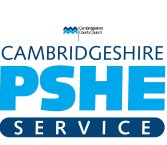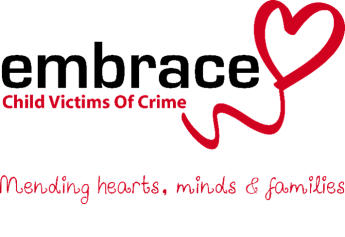To nurture the skills of resilience is key to providing young people with the ability to cope with stress, adversity, failure and challenges. Resilience is evident when young people have a greater ability to “bounce back” when faced with difficulties and achieve positive outcomes.
Resilience empowers the individual to recognise the positives and negatives of social media and be aware of unhealthy messages and how it can affect an individual and their family/friends. Resilience enables an individual to use social media correctly and to challenge or provide support to others who don’t
Social networking is hugely popular. Many young people are sophisticated in the way they use social media apps and websites, tailoring their communication for different audiences, and accessing them from a range of devices including smartphones, tablets, and games consoles.
But social media, like all forms of public communication, comes with some risks. By helping the individual to understand what the risks are, schools/parents/carers can play a big part in preventing them from turning into problems.
Students need to be equipped with the knowledge needed to make the best use of the internet and technology in a safe, considered and respectful way, so they are able to reap the benefits of the online world.
How to evaluate what they see online – This will enable pupils to make judgements about what they see online and not automatically assume that what they see is true, valid or acceptable.
Schools can help pupils consider questions including:
- is this website/URL/email fake? How can I tell?
- what does this cookie do and what information am I sharing?
- is this person who they say they are?
- why does someone want me to see this?
- why does someone want me to send this?
- why would someone want me to believe this?
- why does this person want my personal information?
- what’s behind this post?
- is this too good to be true?
- is this fact or opinion?
How to recognise techniques used for persuasion – This will enable pupils to recognise the techniques that are often used to persuade or manipulate others. Understanding that a strong grasp of knowledge across many areas makes people less vulnerable to these techniques and better equipped to recognise and respond appropriately to strongly biased intent or malicious activity.
Schools can help pupils to recognise:
- online content which tries to make people believe something false is true and/or mislead (misinformation and disinformation),
- techniques that companies use to persuade people to buy something,
- ways in which games and social media companies try to keep users online longer (persuasive/sticky design); and
- criminal activities such as grooming.
Online behaviour – This will enable pupils to understand what acceptable and unacceptable online behaviour look like. Schools should teach pupils that the same standard of behaviour and honesty apply on and offline, including the importance of respect for others. Schools should also teach pupils to recognise unacceptable behaviour in others.
Schools can help pupils to recognise acceptable and unacceptable behaviour by:
- looking at why people behave differently online, for example how anonymity (you do not know me) and invisibility (you cannot see me) affect what people do,
- looking at how online emotions can be intensified resulting in mob mentality
- teaching techniques (relevant on and offline) to defuse or calm arguments, for example a disagreement with friends, and disengage from unwanted contact or content online;
- considering unacceptable online behaviours often passed off as so-called social norms or just banter. For example, negative language that can be used, and in some cases is often expected, as part of online gaming and the acceptance of misogynistic, homophobic and racist language that would never be tolerated offline.
How to identify online risks – This will enable pupils to identify possible online risks and make informed decisions about how to act. This should not be about providing a list of what not to do online. The focus should be to help pupils assess a situation, think through the consequences of acting in different ways and decide on the best course of action.
Schools can help pupils to identify and manage risk by:
- discussing the ways in which someone may put themselves at risk online
- discussing risks posed by another person’s online behaviour
- discussing when risk taking can be positive and negative
- discussing “online reputation” and the positive and negative aspects of an online digital footprint. This could include longer-term considerations, i.e. how past online behaviours could impact on their future, when applying for a place at university or a job for example,
- discussing the risks versus the benefits of sharing information online and how to make a judgement about when and how to share and who to share with
- asking questions such as what might happen if I post something online? Who will see it? Who might they send it to?
How and when to seek support – This will enable pupils to understand safe ways in which to seek support if they are concerned or upset by something they have seen online.
Schools can help pupils by:
- helping them to identify who trusted adults are
- looking at the different ways to access support from the school, police, the National Crime Agency’s Click CEOP reporting service for children
- helping them to understand that various platforms and apps will have ways in which inappropriate contact or content can be reported.
Source – DfE
By the end of primary school
- that for most people the internet is an integral part of life and has many benefits.
- about the benefits of rationing time spent online, the risks of excessive time spent on electronic devices and the impact of positive and negative content online on their own and others’ mental and physical wellbeing.
- how to consider the effect of their online actions on others and know how to recognise and display respectful behaviour online and the importance of keeping personal information private.
- why social media, some computer games and online gaming, for example, are age restricted.
- that the internet can also be a negative place where online abuse, trolling, bullying and harassment can take place, which can have a negative impact on mental health.
- how to be a discerning consumer of information online including understanding that information, including that from search engines, is ranked, selected and targeted.
- where and how to report concerns and get support with issues online.
Source: Relationships Education RSE and Health Education (DfE) Relationships Education, Relationships and Sex Education and Health Education guidance (publishing.service.gov.uk)
By the end of secondary school
- the similarities and differences between the online world and the physical world, including: the impact of unhealthy or obsessive comparison with others online (including through setting unrealistic expectations for body image), how people may curate a specific image of their life online, over-reliance on online relationships including social media, the risks related to online gambling including the accumulation of debt, how advertising and information is targeted at them and how to be a discerning consumer of information online.
- how to identify harmful behaviours online (including bullying, abuse or harassment) and how to report, or find support, if they have been affected by those behaviours.
Source: Relationships Education RSE and Health Education (DfE) Relationships Education, Relationships and Sex Education and Health Education guidance (publishing.service.gov.uk)
Source – Rise Above
Local Support

Cambridgeshire Personal, Social and Health Education (PSHE) Service
Cambridgeshire Personal, Social and Health Education (PSHE) Service The Cambridgeshire PSHE Service provides guidance, consultancy, training and resources to support and enhance the health and wellbeing of children and young people and their learning. This includes the curriculum for PSHE and Citizenship: its content, approaches to teaching and learning and monitoring and assessment. We also
Read More About Cambridgeshire Personal, Social and Health Education (PSHE) Service
Embrace Child Victims Of Crime
Helping young crime victims and witnesses recover from trauma Embrace Child Victims Of Crime is a specialist support service for young victims and witnesses to crime on behalf of the Police and Crime Commissioner for Cambridgeshire and Peterborough. The aim of the Cambridgeshire-based charity is to help children, young people, and families from all over
Read More About Embrace Child Victims Of Crime
HEAR – the free to use mental health text service
NHS Cambridgeshire and Peterborough provides HEAR – the free to use mental health text service HEAR 85258 is being funded by NHS Cambridgeshire & Peterborough, in partnership with the national service SHOUT. The free to use text service provides real-time support to people who are struggling with their mental health across the county. When texting
Read More About HEAR – the free to use mental health text service
Keep Your Head
The Cambridgeshire and Peterborough Integrated Care System (ICS) Partners have refreshed the Keep Your Head website. It continues to provide a central hub of high quality information on mental health and mental health services. It also offers tailored and age-appropriate information for children and young people, adults, professionals and schools on a wide range of
Read More About Keep Your HeadNSPCC
Whether you’re looking for advice, or are worried about a child, the NSPCC have got a range of helplines to support you. While we understand that your school will have procedures and policies in place for safeguarding issues, we recognise that if you’re working with and supporting children and families, sometimes you might need to
Read More About NSPCCResources
External Links
- Age 4-7 Ceop Education
- Age 8-10 CEOP Education
- Barefoot Computing – #becybersmart
- Be Internet Legends – Google
- Beano and Young Minds content for Under 12s
- CEOP – Safety Centre
- CEOP Thinkuknow – Online and offline safety – Professionals Site
- CEOP Thinkuknow – Parents Site
- Education for a Connected World
- Internet Matters – Schools esafety – parent online support pack teachers
- Internet Matters – Schools esafety – pre-school
- Internet Matters – Schools esafety – secondary
- Internet Matters – Schools esafety primary
- Keep your head – Online safety
- National Online Safety
- NSPCC It’s NOT OK resources
- NSPCC Keeping Children Safe – Online Safety
- PHE – Body image in a digital world plan pack
- PHE – Bullying and cyberbullying — KS3 and KS4 lesson plan
- PHE – Online stress and FOMO lesson plan pack
- PHE – Social media – KS3 and KS4 lesson plan
- PHE – Social media – Year 6 lesson plan
- Project EVOLVE
- ProjectEVOLVE
- PSHE – New resources and training – online safety and digital resilience
- The internet, relationships & you – CEOP
- The IT Service Esafety for schools
- UK Safer Internet Centre
- Virgin Media Online Safety Test
- Young Minds & Beano Lesson Plan



